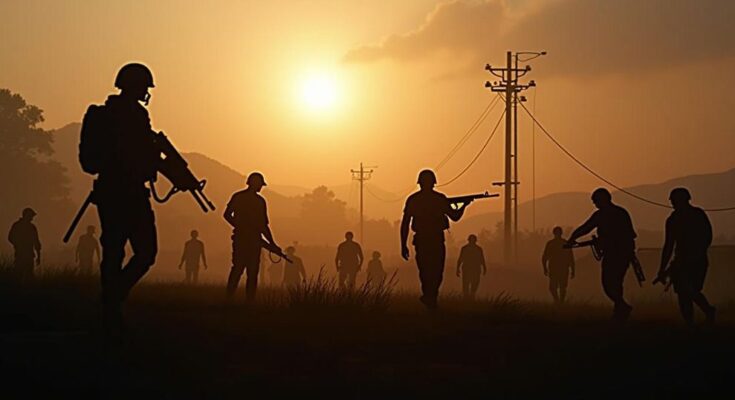On President Claudia Sheinbaum’s first day in office, Mexican army troops opened fire on a truck carrying migrants, resulting in the deaths of six individuals from Egypt, Peru, and El Salvador. The incident has heightened scrutiny on Mexico’s militarized approach to immigration and raised concerns regarding human rights violations against vulnerable migrant populations. Calls for an investigation have emerged, emphasizing the need for accountability and a reevaluation of military engagement with migrants.
The tragic shooting of six migrants, identified as coming from Egypt, Peru, and El Salvador, by Mexican army troops has sparked outrage and condemnation. President Claudia Sheinbaum labeled the incident, which resulted in the deaths of the migrants and injuries to ten others, as “deplorable.” The incident occurred in Huixtla, Chiapas, an area frequently traversed by migrants, indicating a concerning pattern of violence against vulnerable populations. After the shooting, President Sheinbaum stated that the soldiers responsible had been handed over to civilian prosecutors for questioning, although charges had yet to be filed. The Peruvian Foreign Ministry confirmed the death of a Peruvian national and called for an urgent investigation, amid previous diplomatic tensions between Peru and Mexico. The Defense Department’s account of the shooting indicated that soldiers perceived shots fired from a convoy of vehicles carrying migrants, leading them to respond with gunfire. However, this explanation was met with skepticism, particularly by migrant advocacy groups, who question the conduct of the soldiers. Irineo Mujica, a prominent migrant rights activist, expressed disbelief that the migrants would have fired upon the military. Moreover, the Mexican bishops’ council criticized the incident, stating it reflected a broader issue of the militarization of immigration policy in Mexico, which has historically led to severe human rights violations against migrants. The council dubbed the use of lethal force “disproportionate” and called for accountability in light of previous similar incidents involving state authorities. This incident marks a grim continuation of violence against migrants in Mexico, building upon a troubling history of killings by law enforcement. Sheinbaum’s administration, which has continued the militarized approach to migration, could face significant scrutiny should investigations reveal that the military’s actions were unjustified, further complicating Mexico’s already strained relations with several Latin American nations.
The shooting incident involving migrants by the Mexican army occurred within a broader context of increasing violence against vulnerable populations seeking refuge. Historically, migrants in Mexico have faced dangers not only from criminal organizations but also from law enforcement agencies that have intermittently abused their power. The Chiapas region, where the incident took place, has been known for its role as a transit point for migrants, leading to heightened tensions and conflicts with local authorities. The recent militarization of migration control has exacerbated concerns regarding human rights violations, fostering a climate of fear among those attempting to cross borders in search of safety and better opportunities. This incident serves as a stark reminder of the ongoing humanitarian crisis affecting migrants in Latin America and the responsibilities of nations to protect vulnerable individuals.
In summary, the shooting of six migrants by Mexican army troops underscores a troubling pattern of violence against vulnerable populations within the country. Despite President Sheinbaum’s assurances of accountability and her condemnation of the incident, skepticism remains regarding the military’s engagement with migrants. As investigations continue, this event may further expose the consequences of a militarized approach to immigration policy in Mexico, amplifying calls for greater protection of human rights and accountability in the treatment of migrants. The ongoing discourse surrounding this incident will likely influence both domestic policies and international relations in the broader Latin American context.
Original Source: abcnews.go.com




